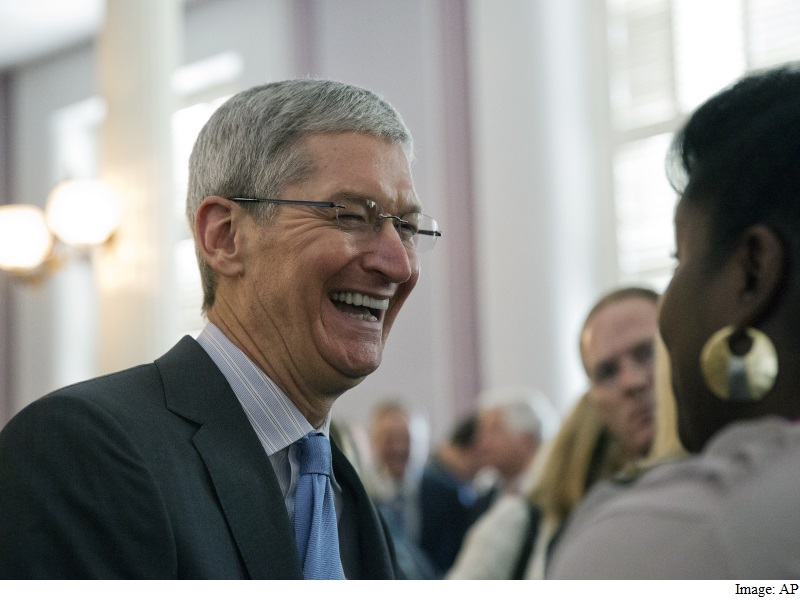- Home
- Others
- Others Opinion
- The Privacy Debate Is Personal to Tim Cook
The Privacy Debate Is Personal to Tim Cook

Today, at Apple headquarters in Cupertino, Calif., Cook keeps in his office photos of two men who pushed the South to change: Robert F. Kennedy and Martin L. King Jr. In recent years, Cook appears to have been inspired by Kennedy and King as he pushed for the South to change again, this time on the issue of gay rights.
Cook, who publicly acknowledged he was gay two years ago, has advocated for changing laws in states such as Alabama, where employees can be fired for being gay. He also has criticized states with "religious freedom" laws that seemed designed to sanction some forms of discrimination.
The line connecting Cook's youth with his current stance on gay rights seems obvious - especially to some of the people who know Cook. Yet Cook dismisses the idea that his upbringing influenced his views on privacy, which grabbed headlines earlier this year when Apple refused to help the FBI crack the passcode-locked iPhone belonging to one of the San Bernardino terrorists.
In an exclusive interview with The Post's Jena McGregor, Cook insisted there were other sources for his views on privacy:
McGregor: You've talked about privacy being part of Apple's values. How personal is it for you? You're known as a very private person. You grew up gay in a red state. Did those early years have an impact on how you lead Apple and on your public stances about privacy?
Cook: "Undoubtedly, your childhood and your upbringing is a constant across your life in terms of the things you learn and your point of view.
"But in terms of privacy, I wouldn't link the two. There's a broader thing in play. Privacy, in my point of view, is a civil liberty that our Founding Fathers thought of a long time ago, and concluded it was an essential part of what it was to be an American. Sort of on the level, if you will, with freedom of speech, freedom of the press. The other thing is how all this data sits out there in different places. I do worry about people not really understanding deeply about what kinds of things are out there about them. So it's really both of those - not really the growing up in the South."
Apple's stance on privacy did not begin with Cook. Apple co-founder Steve Jobs was an ardent believer in the need for his company's products to be private and safe.
But Cook, since taking over as CEO in 2011, has made an especially forceful case about the need for privacy. And since the dispute with the FBI over the unlocking of a killer's smartphone, Cook has pushed the fight in interviews and speeches, not content to allow Apple's attorneys and spokesmen to handle the message.
Perhaps Cook really doesn't believe that growing up gay in the small town Deep South affected his current views. Maybe he's worried that acknowledging the personal connection will cheapen the privacy message.
But under Cook, Apple no longer talks about privacy as some bonus feature of its devices. Privacy is elevated to something more intrinsic, more personal: A right.
© 2016 The Washington Post
For the latest tech news and reviews, follow Gadgets 360 on X, Facebook, WhatsApp, Threads and Google News. For the latest videos on gadgets and tech, subscribe to our YouTube channel. If you want to know everything about top influencers, follow our in-house Who'sThat360 on Instagram and YouTube.
Related Stories
- Samsung Galaxy Unpacked 2025
- ChatGPT
- Redmi Note 14 Pro+
- iPhone 16
- Apple Vision Pro
- Oneplus 12
- OnePlus Nord CE 3 Lite 5G
- iPhone 13
- Xiaomi 14 Pro
- Oppo Find N3
- Tecno Spark Go (2023)
- Realme V30
- Best Phones Under 25000
- Samsung Galaxy S24 Series
- Cryptocurrency
- iQoo 12
- Samsung Galaxy S24 Ultra
- Giottus
- Samsung Galaxy Z Flip 5
- Apple 'Scary Fast'
- Housefull 5
- GoPro Hero 12 Black Review
- Invincible Season 2
- JioGlass
- HD Ready TV
- Laptop Under 50000
- Smartwatch Under 10000
- Latest Mobile Phones
- Compare Phones
- Moto G15 Power
- Moto G15
- Realme 14x 5G
- Poco M7 Pro 5G
- Poco C75 5G
- Vivo Y300 (China)
- HMD Arc
- Lava Blaze Duo 5G
- Asus Zenbook S 14
- MacBook Pro 16-inch (M4 Max, 2024)
- Honor Pad V9
- Tecno Megapad 11
- Redmi Watch 5
- Huawei Watch Ultimate Design
- Sony 65 Inches Ultra HD (4K) LED Smart TV (KD-65X74L)
- TCL 55 Inches Ultra HD (4K) LED Smart TV (55C61B)
- Sony PlayStation 5 Pro
- Sony PlayStation 5 Slim Digital Edition
- Blue Star 1.5 Ton 3 Star Inverter Split AC (IC318DNUHC)
- Blue Star 1.5 Ton 3 Star Inverter Split AC (IA318VKU)

















